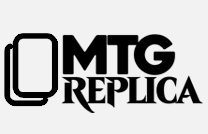The world of Magic: The Gathering is filled with passionate players, creative deck builders, and a thriving secondary market. However, as the game has grown in popularity, so too has the presence of mtg fake cards. Whether you’re a seasoned collector or a casual player, it’s important to understand what fake cards are, how they differ from proxies, and how to protect yourself and your playgroup.
What Are MTG Fake Cards?
MTG fake cards are unauthorized reproductions designed to mimic real Magic cards, often with the intent to deceive. Unlike proxies, which are typically used for personal play or testing and are not intended to be passed off as authentic, fake cards are made to look as close to the real thing as possible. This makes them a concern for collectors, traders, and anyone purchasing singles on the secondary market.
The Risks of MTG Counterfeit Cards
The rise of mtg counterfeit cards has become a serious issue in recent years. Counterfeits are fake cards specifically produced to be sold as genuine, often targeting rare and valuable cards. This not only undermines the integrity of the game but can also result in significant financial loss for unsuspecting buyers. Wizards of the Coast has strict policies against counterfeiting, and selling fake cards as real is illegal and can lead to severe consequences.
The Role and Legality of MTG Proxy Cards
It’s crucial to distinguish between fake cards meant to deceive and an mtg proxy. A proxy is a stand-in card, often used in casual settings or for playtesting. Wizards of the Coast allows proxies for personal, non-commercial use in unsanctioned events, as long as they are not being sold as genuine Magic cards or used in sanctioned tournaments. Many playgroups and local game stores have their own proxy policies, and proxies can be a valuable tool for players who want to experiment with new decks or avoid damaging expensive cards.
“Wizards of the Coast has no desire to police playtest cards made for personal, non-commercial use, even if that usage takes place in a store.” – WotC Official Stance
MTG Proxy Tournament Play: What’s Allowed?
The use of proxies in tournaments is a nuanced topic. In official, DCI-sanctioned events, only authentic Magic cards are permitted, except in rare cases where a judge issues a proxy due to accidental damage during the event. However, some unsanctioned tournaments—especially in Eternal formats or local events—may allow a certain number of proxies to make high-cost formats more accessible. Always check the specific event’s rules before entering with proxies.
How to Protect Yourself and Play Responsibly
Buy from reputable sources: When purchasing singles, use trusted vendors and verify authenticity.
Educate your group: Make sure everyone understands the difference between fake cards, counterfeits, and proxies.
Respect tournament rules: Only use proxies where permitted and never attempt to pass them off as real cards.
Support ethical play: Encourage transparency and honesty in your playgroup or community.
Conclusion
The presence of mtg fake cards and mtg counterfeit cards is a reality in the Magic community, but with knowledge and vigilance, you can protect yourself and enjoy the game responsibly. Using an mtg proxy for casual play or testing is widely accepted, but always respect the guidelines of your playgroup and tournament organizers. And if you’re considering entering an mtg proxy tournament, be sure to review the event’s rules to ensure your deck is compliant. By staying informed and playing ethically, you help maintain the integrity and enjoyment of Magic for everyone.
